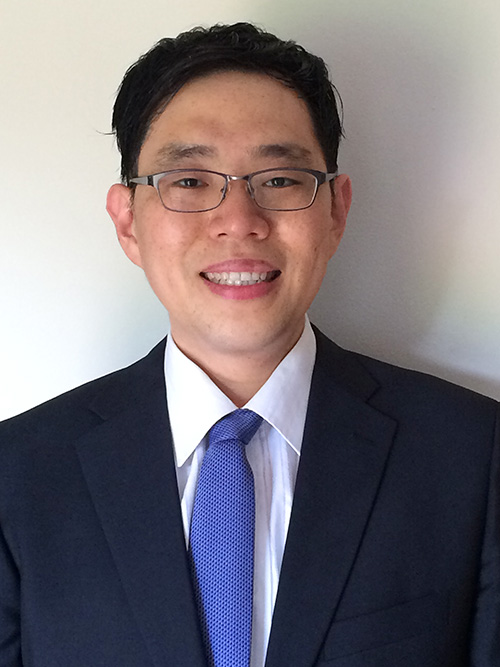Should a visionary leader act differently with separate groups of employees?
These days, we’re seeing politicians making different speeches and almost adopting different personas when they are addressing various groups. For instance, when speaking to union members, the politician speaks fundamentally differently than, say, when addressing Wall Street leaders. But what about in companies and organizations? Should a boss present herself one way with a certain group of people and another way to others? Should a leader share certain things with one group than he does with another?
Dr. Goo was presented with his award, including a $3,000 cash prize, at the 76th Annual Meeting of the Academy of Management, held August 5-9, 2015, in Anaheim, California. The Academy’s annual meeting is the largest worldwide gathering of professors and Ph.D. students in business schools at universities, academics in related social science and other fields, and practitioners who value knowledge creation and application.
Visionary leadership: The right fit needed
Visionary leaders are future-oriented and are clear about where the department, the division, and the company are headed. Furthermore, visionary leadership has long been credited with increasing employees’ positive attitude and performance, Dr. Goo writes. But are those leaders who can articulate an ambitious view of the future to their employees really well received?
“We have long always assumed that employees want to know the vision a leader has, but some people have a higher need for it,” points out Dr. Nathan Hiller, Academic Director of the Center for Leadership and member of the international selection committee for the Alvah H. Chapman Jr. Outstanding Dissertation Award. “What is fascinating about Dr. Goo’s study is that he researched the question ‘can a leader over-tell it?’”
Dr. Goo recruited hundreds of respondents from a Chinese division of an international personal care products company. All participants were full-time employees and represented diverse functional areas including product development, supply chain, and finance. Each was asked to respond to a questionnaire which examined the core elements of visionary leadership behavior. The items were “Transmitting a sense of mission,” “Communicating a vision of the future,” and “Providing a vision of where our unit is going.”
Results from the study showed that trust in the supervisor was most positive when the amount of visionary leadership received matched the amount needed by each employee, Dr. Goo reports. Likewise, attitudes became more negative when the visionary leadership received was less than or more than the needed amount. In other words, whether or not a visionary leader was well received depended on whether or not he, or his communication of a vision of the future, is what the employees needed. No wonder that Dr. Woo used the words “Just Right” when naming his dissertation. Just like the fairytale Goldilocks, workers want the right amount of a vision of the future.
“This research shows that the level of trust a team member has in the leader is connected to whether or not the amount of visionary leadership the boss is showing matches what the employee needs,” says Dr. Hiller.
“It’s not one-size-fits-all.”
“Additionally, trust was more positive when visionary leadership needed and received were both high than when both were low,” says Dr. Goo. “The ideal happens when a member wants a high level of visionary leadership and receives it.”
Core Self Evaluation
A second part to Dr. Goo’s work examined how Core Self Evaluation (CSE), the amount of self-esteem a person has, can affect the outcome. He wanted to see if the level of CSE that a worker has matters when the worker is not getting the right amount of visionary leadership (either too much or too little).
Results from Study 2 showed that CSE does indeed matter. “Employees low in CSE suffered more from deficiency and excess,” says Dr. Goo. “But employees high in CSE were more successful in buffering themselves against the negative effects of deficient or excess leadership.”
Congratulations to Dr. Goo

“We are thrilled with how this award generates more and more buzz each year,” says Dr. Hiller. “Entries come from around the world and Dr. Goo’s work had very strong competition. We are delighted to name his as the outstanding dissertation.”
“To win the Alvah Chapman Jr. Outstanding Dissertation award is quite an honor,” said Dr. Goo.“I really couldn’t believe it when I heard the news.”
Dr. Goo earned his PhD in Business Administration, Organizational Behavior and Human Resources Management, at Georgia State University (2015). Prior to that, he earned two degrees from Seoul National University in South Korea: a Bachelor of Business Administration (2005) and a Master of Science in Business Administration Human Resource Management & Organizational Behavior (2007). His research interests are Person-Environment Fit, Transformational Leadership, and Well-being.
Practical applications for your workplace
- Realizing that one-size-doesn’t-fit-all when it comes to a vision of the future, leaders should adjust the amount of vision they share. This includes in situations such as one-on-one discussions with members as well as when a leader is addressing a group of people.
- “Look for cues coming from the people you’re talking to about your vision, to see how well it’s being received,” advises Dr. Hiller. “Don’t assume they want everything you have to give. Watch for body language. Are they interested or backing off? Are they asking questions?”
- A smart leader realizes that people who are less sure of themselves are more in need of a leader whose elaboration and frequency of discussing his or her vision matches what they want.
- Dr. Goo recommends training managers to supply visionary leadership in amounts that fit what their employees need. “Organizations can train leaders to match the amount of vision that workers want,” he says.
